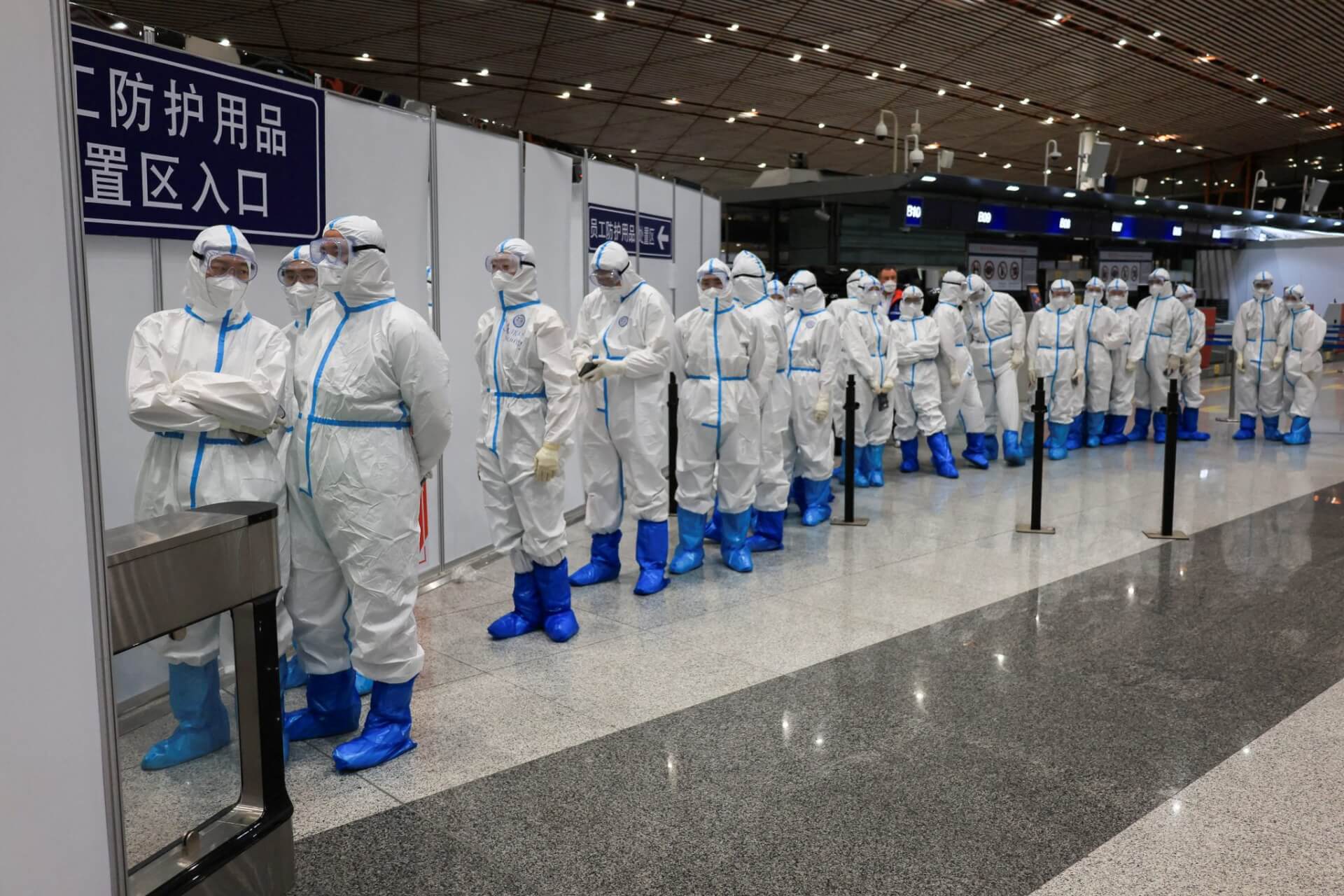China’s ruling Chinese Communist Party (CCP) on Tuesday called on citizens to strictly adhere to the party’s stringent “zero-COVID” policy despite announcing some relaxations.
State-owned media house The People’s Daily said in an editorial that the country must “unswervingly implement” the hard-line policy that requires citizens to undergo compulsory mass testing and implements lockdown measures on millions of people.
The government’s latest order comes after China’s National Health Commission reported on Tuesday that the daily virus tally had surged to almost 20,000. China recorded 19,609 cases on Tuesday alone, marking the highest rise since late April, when the megacity Shanghai was under an extreme two-month lockdown.
The southern city of Guangzhou remains the biggest hotspot, with 6,296 new infections—most of them asymptomatic. Although Chongqing saw a decline in numbers, it recorded over 2,000 cases for a third consecutive day.
The people of Guangzhou singing for the people of #China 👇 https://t.co/0bdvzyopt3
— Benedict Rogers 羅傑斯 (@benedictrogers) November 15, 2022
The government’s renewed insistence on its inflexible COVID-19 containment policy has sparked protests across the financial hub of Guangzhou. Videos and images circulating on social media show residents under lockdown tearing down barriers meant to confine them to their homes and taking to the streets in defiance of stay-at-home orders.
Images from the city’s Haizhu district, the epicentre of the city’s ongoing COVID-19 outbreak and which has been under a severely restrictive lockdown since 5 November, show large crowds surging past fallen barriers at night.
In another video, workers in hazmat suits can be seen watching from the sidelines as people topple barriers while trying to convince protestors to restore calm. “They’re revolting,” a woman’s voice can be heard saying in the background of one such video.
..to places with outbreaks often results in being quarantined. Once that happens u might as well be somewhere else 3) Transport to cities with outbreaks might even be cut off and 4) local authorities use covid restrictions as a way to threaten reporters. It’s common…
— Don Weinland (@donweinland) November 15, 2022
There is no confirmation of how many people took part in the protest or how long it lasted. Moreover, related content online was quickly taken down by Chinese internet censors.
A phone operator from the Haizhu District government office told CNN, though, that the area is still “largely closed off”. However, the operator declined to confirm if protests had taken place recently.
Haizhu is home to a vast majority of labourers, who have complained about how these restrictions have impacted their wages and keep pace with rising inflation.
..of directly confirming what is happening. This is not a bug but a feature of zero covid in China. Covid lockdowns are lockdowns on information. Suffice it to say this is a very frustrating situation for the few foreign reporters in the country
— Don Weinland (@donweinland) November 15, 2022
According to media reports, unverified rumours have played a role in the mass act of defiance. Rumours spread locally that the testing companies have been faking PCR test results to falsely spike up infection numbers in order to increase their profits.
Moreover, officials in China’s northern Hebei province announced that the city of Shijiazhuang would stop mass testing, which led to speculation that the population was going to be used as a control group to analyse what would happen if the infection was allowed to spread unchecked.
A similar situation unfolded in Zhengzhou in China’s Henan province earlier this month when workers at a Foxconn plant staged a mass breakout after a seven-day lockdown was imposed in the area.
A 21-year-old employee told the BBC at the time that he had heard rumours that the army was going to come in and enforce a large-scale “living with COVID” experiment that involved allowing everyone in that part of the city to become infected. According to the rumour, the plan was to see how many deaths would occur, which would help guide authorities on if and how to open up the rest of the country.
WATCH: Scenes of unrest emerged in China’s Guangzhou as residents knocked over quarantine barriers and flooded the streets after a Covid lockdown was extended.
— DW News (@dwnews) November 15, 2022
This was a rare show of protest against China's zero-Covid policy, which has been in force for nearly three years. pic.twitter.com/5478ZVEidi
Other Chinese cities, including Yanji in the northeast and Hefei in the east, have also suspended routine mass testing and eased restrictions. On Friday, the National Health Commission updated its containment rules by reducing quarantine times for close contacts of cases and inbound travellers by two days, bringing it to a total of eight days.
The little relaxation was enough to raise the hopes of investors who have desperately been searching for any indication that Beijing will ease its rules. The excitement was reflected in Hong Kong’s stock market, which rose by nearly 8% last Friday. Chinese authorities have been pushed to reconsider the limits of the zero-COVID policy in light of weak economic growth, which has fluctuated around 3%, the lowest in decades.

